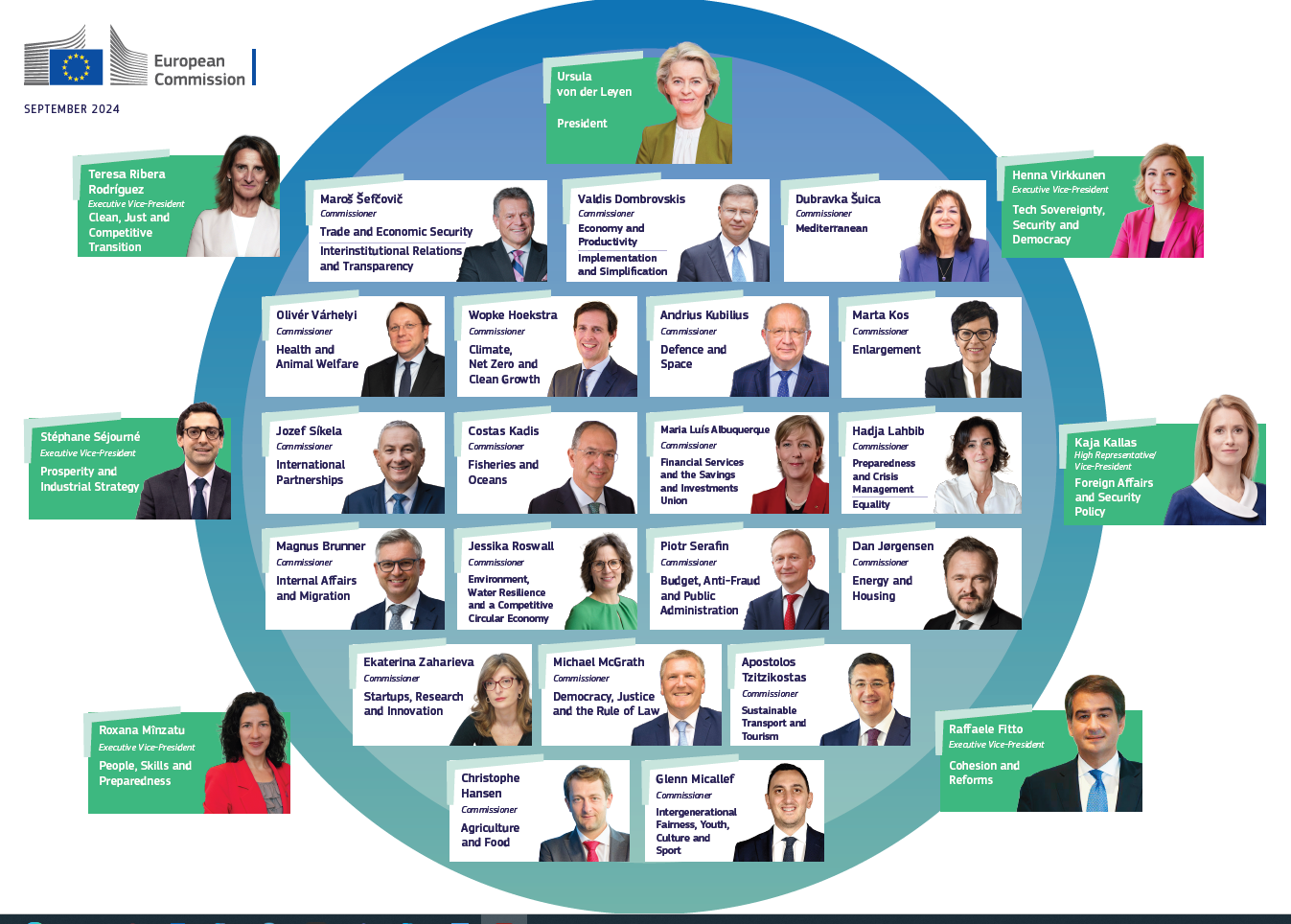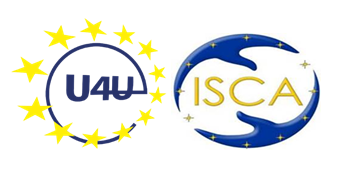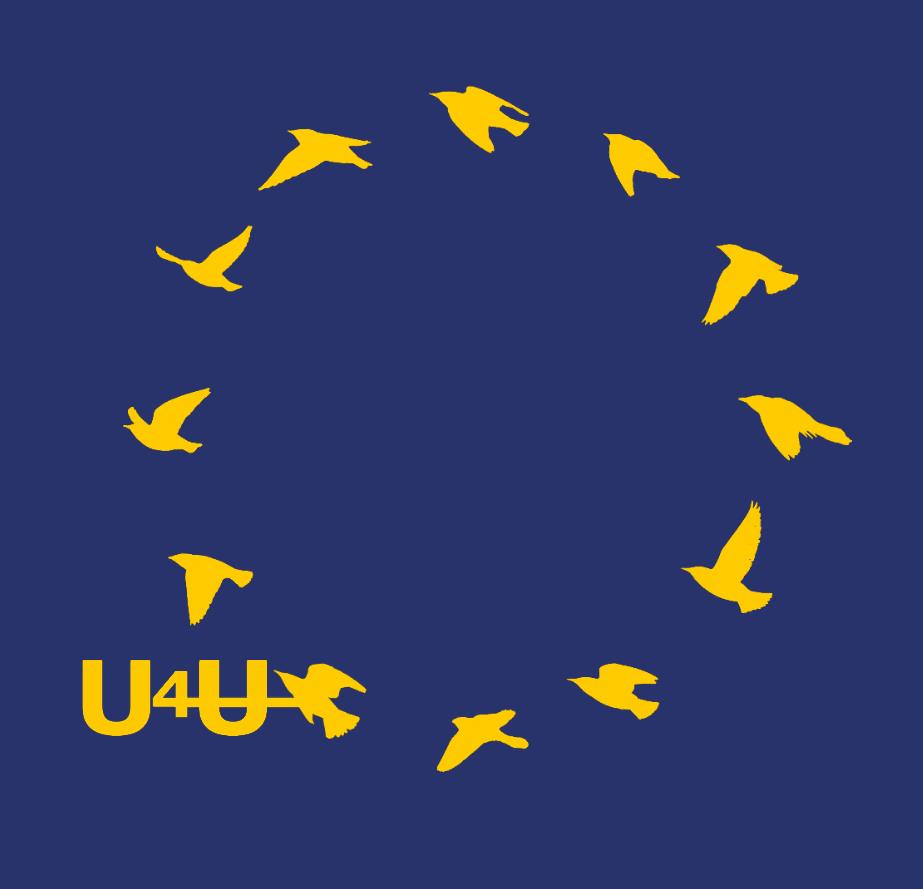The new European Commission faces major challenges
The new European Commission, chaired by Ms. von der Leyen, will take office on December 1, following the hearings of the Commissioners-designate in November.
The Commission will face major challenges in the face of internal and external threats to the European Union. While its first mandate was marked by the pandemic and the war in Ukraine, its second mandate will have to continue to support the war effort against Russia, with a new American president and a far right that is gaining strength across Europe.
And yet, in the face of successive crises, the European Union has proven itself equal to these challenges. Just a few years ago, it would have been unthinkable for it to borrow on the international markets to finance a large-scale recovery plan (providing grants and loans to member states); and for it to become the largest lender to Ukraine.
The European Commission will have to make important decisions about the future of the European Union and its budget while supporting Ukraine. The European Parliament is more divided than ever. Around the table of the European Council sit a number of heads of state and government who belong to the extreme right or who are hostile to the prerogatives of the European Commission.
The battle over the European budget will be a test at a time when the Commission is struggling to increase spending on European defense (even though it has no direct powers in this area) and the ecological transition. Negotiations on the next multiannual financial framework (2028-2035) are already shaping up to be very difficult. The question of how to finance the budget is divided within the Council between the “pragmatic” member states, which see the need to increase spending – through new own resources or a new common debt – and the “frugal” member states, which oppose any increase in the current budget, which is capped at around 1% of European GDP. This is an eminently political issue: there is a refusal to transfer competences or even sovereignty to the European Union, such as the possibility of levying European taxes (whether a carbon tax or a tax on the profits of multinationals). However, the Draghi report reminds us that if the European Union does not agree to a collective investment effort, which it estimates at around 5% of GDP per year, it could, in its words, go down the road of decline at breakneck speed and lose its common identity.
Over the next five years, we will also have to prepare the continent for future enlargement, perhaps to 36 members. In this process, Europe’s 450 million citizens will need to be convinced that the future of the European Union lies not only in Paris or Berlin, but also in Kiev, Chisinau and Podgorica.
The Commission will therefore play a crucial role in preparing the future of the European Union by ensuring that it has sufficient resources, including human resources, to act effectively and by conducting the enlargement negotiations in a more hostile international environment than in the past. In the face of these challenges, the Commission will have to rely on the European civil service, which has always demonstrated its competence and commitment in difficult times. However, the situation is becoming increasingly difficult for staff (including a growing proportion of contract and temporary staff), who have to cope with an increased workload resulting from the new missions and tasks entrusted to the Commission, despite the current budgetary constraints. It will be necessary to show resilience because, if the next few years are difficult, staff will be called upon to carry out new tasks in the urgency and contingency of events. But it is also out of necessity that we are calling for a more ambitious and responsive human resources policy to meet the challenges of our time.

The President of the European Parliament meets the trade unions and the Staff Committee

The trade unions and the European Parliament (EP) have just concluded a new framework agreement governing relations between staff organizations and the administration and their social dialogue. In this context, the EP trade unions have just met with the President of the EP, Roberta Metsola, and its Secretary General, Alessandro Chiocchetti.
It is important to note that the EP is the only European institution that organizes such a meeting on an annual basis. This meeting allows trade union organizations, even those that are not representative, and the Staff Committee to highlight the issues that are of most concern to them. On this occasion, the following topics were discussed: the ongoing restructuring, the creation of the new DGs, the situation of the staff of DG SAFE, the situation of precarious staff and how to improve their situation, the creation of a housing allowance in Luxembourg, the functioning of the social dialogue, etc.
In light of the issues raised by other trade unions, many of which echoed our concerns, U4U insisted on 3 additional policy issues:
- We insisted on the budget battle U4U is campaigning for a growing financial perspective, without which our public services will not be able to meet all the needs of European society. The next EU budget should be debated as early as 2025 and the EP, as budgetary authority, can influence the size of this budget in the same way as the Council.
- We stressed that we count on the EP and the Commission not to accept the intentions of certain Member States in favor of a new reform of the Staff Regulations. U4U reiterated its strong and resolute opposition and insisted on the savings already made by the previous reforms, the extent and negative impact of which on the attractiveness of the European civil service had been underlined by the report of the Court of Auditors. The political moment for this kind of reform is very badly chosen, because we need all our strength and unity to face the many challenges we are facing.
- Finally, we stressed the importance of a sustained social dialogue that produces results. Our democratic model must be effective, i.e. it must meet staff expectations for improvement and the needs of the institution. More than half of the EP’s staff no longer vote in professional elections, where their interests are no longer taken for granted. We believe that the administration and the trade unions share responsibility for this development. We must take action to show that social dialogue can solve the problems of our colleagues.
We’ll come back to all the issues raised above.
For the time being, we note the political will of the administration to engage in dialogue with both the Staff Committee and the trade unions.
It should also be noted that both the EP administration and its President are not in favor of a new reform of the Staff Regulations. Finally, the housing allowance in Luxembourg is expected to come into force in 2025, at least in the European Parliament..
Civic action to get involved

In 2024, there were two opportunities to exercise European citizenship in Belgium. The first was the election to the European Parliament, for which voters could choose to vote in their national constituency or in their constituency of residence, which for most of us was Belgium. The second was to be able to vote in the Belgian municipal elections, in our commune of residence, even if we don’t have Belgian citizenship.
U4U carried out a strictly non-partisan campaign to raise awareness of these rights and to make it easier to register to vote in Belgium. This action was carried out in partnership with other actors (1BRU1VOTE, Graspe, Brussels Commissioner for Europe, Restless Brussels and Stand Up for Europe, ZN) and, for the municipal elections, under the patronage of the Brussels-Capital Region).
For the European Parliament elections, U4U ran a campaign to explain the rights and procedures for registering to vote. With the extension of voting rights to 16-year-olds, this was the perfect opportunity for our young people to exercise their rights as European citizens for the first time.
For the municipal elections, the same information campaign was complemented by local actions (markets, in front of public buildings, etc.), as the possibility to vote was extended to non-EU foreigners.
It is difficult to measure the impact of these two actions, but we can say that more than 50,000 non-Belgians registered to vote in Brussels. We can only claim a small part of this success…
There’s still time to register to vote in the next elections! Did you know that foreigners represent ONE THIRD of the potential voters in the Brussels-Capital Region? That’s a huge number, especially when local councillors can be elected by a few hundred votes. Your vote is important and can make a real difference!
We will continue our action with our partners, this time to demand the right to vote in regional elections. Let’s activate our European citizenship with U4U!
End of contract for contract or temporary staff: what about your unemployment or pension rights?

On 1er January 2024, out of a total of 32484 people working for the Commission, there were 7729 contract agents and 3001 temporary agents (source: Key Figures 2024, HR). This represents a total of 1/3 of the Institution’s staff. For most of the colleagues concerned, the prospect of the end of their contract is not without raising a number of concerns, whether in terms of access to replacement income (unemployment benefit), pension rights or the possibility of continuing their career within the European institutions. Every year, our individual support service receives dozens of questions on these subjects. It is the most common of these questions that we will try to answer in the following lines.
Can I refuse to extend my contract and still be entitled to unemployment benefit?
NO
If your institution formally offers you a renewal of a fixed-term contract (either as a contract agent or as a temporary agent) and you refuse it, the loss of your job will be considered to be your own decision. You will therefore not receive the unemployment benefit provided for in the Conditions of Employment of Other Servants of the European Union.
(Source: Sada v Commission judgment of the EU Court of First Instance of 17 April 2002 – case T-325/00).
Am I entitled to “national” unemployment benefit at the end of my contract?
YES, subject to the application of the relevant national legislation.
The legislation in force obviously differs from country to country. However, most national legislations require the applicant to be able to prove that he or she has worked a certain number of days over a given reference period. In all EU countries, days worked as a temporary or contract agent in a European institution are taken into account in this calculation.
(Source: Melchior/ONEM judgment of the Court of Justice of the EU of 4 February 2015 – case C/647/13)
What is unemployment benefit for European Union staff?
Articles 28a (for temporary staff) and 96 (for contract staff) of the Conditions of Employment of Other Servants (CEOS) provide for the payment of a specific unemployment allowance for a period equivalent to 1/3 of the time worked in a European institution, up to an absolute maximum of 36 months.
This allowance is complementary to that paid by a national scheme (which means that it is compulsory to claim “national” unemployment benefit and that the amounts received under this scheme are deducted from those received under the European Union unemployment benefit).
The amount of the allowance decreases from 60% of the last basic salary in the first few months to 45% and finally to 30%. Any tax due to the Union budget must be deducted from this amount, and any family or household allowances must be added.
Please note: you must make a formal application to receive this allowance. Don’t forget to take the necessary steps.
(Source : https://myintracomm.ec.europa.eu/staff/FR/working-conditions/end-of-service/end-of-contract/ )
Will I be entitled to an EU pension when I reach retirement age?
ONLY IF you have worked for the institutions, bodies or agencies of the European Union for a total of at least ten years.
These ten years may cover several contracts, possibly with interruptions between them.
Please note that if you are still in service when you reach pensionable age, your pension entitlement will be granted, even if you do not have 10 years’ service.
Of course, you can only claim this pension when you reach the retirement age set out in the Staff Regulations. This may vary according to circumstances. It is also possible to apply for early retirement from the age of 58, in return for a reduction in the monthly pension.
(Source: https://myintracomm.ec.europa.eu/staff/FR/working-conditions/end-of-service/retirement)
What happens to the contributions I’ve paid towards my pension if I don’t reach a total of 10 years’ service?
In this case, you will have to transfer the amount of your contributions to another pension scheme (national scheme or private insurance or pension fund scheme).
If you have worked for less than a year, and only in this case, you also have the option of being paid a severance grant instead of making this transfer.
(Source: https://myintracomm.ec.europa.eu/staff/FR/working-conditions/end-of-service/transfer-out-of-pension-rights/)
What are U4U’s demands to improve the status of contract and temporary staff?
The creation of the status of contract agent, as we know it today, dates back to the 2004 reform of the Staff Regulations. After 20 years under this regime, we are saying “AC, enough is enough”.
The White Paper on the reform of the Commission (COM/2000/0200), while recognising the essential role of non-permanent staff on contract, announced that it wanted to “rely less” on them when it came to carrying out tasks for which there was a permanent need. We note today that reliance on contract staff is constantly increasing, including for posts where there is a permanent need for competent staff. Such an approach benefits neither the staff nor the institution.
We are therefore proposing, whilst still remaining within the framework of the rules set out in the current Staff Regulations, to introduce more flexible policies to give contract staff easier access to internal competitions, through access to temporary staff posts, and to reach the number of years required to qualify for a pension.
Our organisation’s proposals on this subject can be found here: https://u4unity.eu/personnel-par-statut/agents-contractuels/
How can you help me if I have further questions or if I’m faced with a difficult situation?
If you have any other questions or would like personalised help with your personal situation, please contact our Individual Case Management department at hr-rep-pers-u4u-assistance-individuelle@ec.europa.eu.
EUIPO regulatory agency: where are we with social dialogue?

On June 26, the Executive Director of the Office received representatives of the Union for Unity (U4U), the European citizens’ trade union for all staff of the institutions, for a second meeting to exchange views on EUIPO’s staff policy and the objectives of the EU institutions and agencies, in particular the management of human and budgetary resources.
The U4U delegation consisted of Georges Vlandas, President, Annabelle Menéndez Vallina, Deputy Secretary General, Yves Caelen, Vice-President, Lucinda Carney, Vice-President for EUIPO, Gregor Schneider, Vice-President for Agencies, and Annakim Giese, Staff Representative at EUIPO.
During the meeting on June 26, a number of important issues concerning the future of the Office and working conditions were discussed. Here are the main issues discussed and our positions:
EPSO and Competitions / Status of Officials and Temporary Agents
U4U expressed its disagreement with EPSO’s refusal to postpone the planned competition for the recruitment of EUIPO officials, stressing that candidates’ investments must be respected. The Commission must guarantee the security and reliability of competitions, whether online or face-to-face. U4U insists on maintaining this competition, which is essential for the future of the Agency. At the same time, the Executive Director, concerned about the budget spent, asked for an assessment of the legal risks before deciding whether or not to reprogram this competition. U4U asks to be consulted on the outcome of this assessment before a final decision is taken.
In general, U4U has insisted on the importance of maintaining internal competitions to ensure the motivation and professional development of staff. Although the administration is considering giving priority to transfers rather than competitions, U4U firmly believes that it is crucial to maintain clear and fair career prospects for all.
HR strategy and strategic plan – staff consultation
U4U raised the issue of the new HR strategy and strategic plan currently being developed and stressed the importance of consulting staff and trade-unions on this issue in a structured and transparent manner. We also asked for clarification on the planned changes and insisted on the importance of internal competitions and the maintenance of an attractive, motivating and modern HR policy, including open-ended contracts for certain temporary staff and the possibility of transfers between agencies.
After a few months of implementation, U4U proposed a consultation of staff to gather their opinions on these new approaches. U4U will continue to dialogue and negotiate to defend your interests, while remaining vigilant about the impact of the proposed new measures.
Evaluations and discrimination
Concerns have been raised about the methodology for evaluating part-time assignments, in particular the risk of discrimination. U4U insisted that the evaluation rules should be fair and transparent.
Teleworking
U4U has raised the issue of teleworking abroad and possible derogations. Pending a response from the Commission on the request for a derogation to maintain 90% teleworking, U4U will continue to defend the introduction of clear and fair rules for all workers.
Next steps
The next meeting is scheduled for the end of the year. In the meantime, if you have any questions or concerns, please do not hesitate to contact us at REP-PERS-OSP-U4U@ec.europa.eu .
We thank our employees for their continued commitment and will continue to work to improve their working conditions.
In solidarity,
Your U4U trade union team
Please do not hesitate to contact us if you have any questions or need further clarification. We’ll keep you updated on our progress and next steps.
Understanding IDOC: how disciplinary procedures work and their consequences

Objective and Mission of IDOC
The Investigation and Disciplinary Office of the European Commission (IDOC) is the body responsible for ensuring that all current and former staff comply with their obligations under the Staff Regulations by conducting administrative investigations and disciplinary proceedings in an impartial and transparent manner. However, the complexity and confidentiality of its procedures can often be a source of considerable stress for the staff members concerned.
Stages of the Disciplinary Procedure – key information
Investigations may be opened following reports from various internal sources, such as other DGs, OLAF, the Medical Service, or from colleagues. A preliminary assessment is made to determine whether there is sufficient evidence to justify opening an investigation. If this is the case, IDOC carries out the investigation, unless OLAF is already involved.
Once an investigation has been opened, IDOC seeks to establish the facts clearly and to assess individual responsibility. Depending on the seriousness of the offences, this may lead to a range of sanctions, from simple warnings to more serious disciplinary measures such as demotion or even dismissal and, where appropriate, temporary reduction of pension or withholding of part of the disability allowance for a specified period.
It is specified that the sanctions may not affect dependents and that the income may not fall below the minimum subsistence level, including family allowances. Finally, even if you are acquitted or dismissed in a criminal or civil case involving the same facts, you should be aware that you may still be subject to sanctions following an IDOC investigation.
Importance of U4U Defence and Support
When facing disciplinary proceedings, it is important not to underestimate the importance of a proper defense from the earliest stages of the proceedings. Simply responding to the first letter in the hope of closing the case “because you didn’t do anything wrong” can be a mistake, especially without fully understanding what is at stake. Our first action is often to facilitate a consultation with a specialized lawyer, where a member of U4U will accompany you, if you wish, to assess the situation.
The deadlines at each stage of the procedure are precise and critical, and it is essential to contact us immediately to receive the best possible support.
U4U is there to help, not to judge, to ensure that everyone has an adequate defense.
Possible sanctions and criticisms of procedures
As we have just seen, the sanctions imposed can include, but are not limited to, delayed promotion, demotion or even dismissal.
However, the measures taken by the Commission in the event of breaches of legal obligations are sometimes considered to be too lenient and insufficiently dissuasive. As a result, there is sometimes pressure to make the sanctions more exemplary.
Although the sanctions are designed to preserve the integrity of the Commission, there has been some criticism of their effectiveness and of the sometimes excessive procedural deadlines.
These issues need to be evaluated.
Typical cases treated by IDOC
Among the cases handled by IDOC and cited anonymously in the IDOC report are offenses such as:
- Falsification of medical treatment certificates ;
- Inappropriate behaviour ;
- Insubordination and unauthorised absences ;
- Psychological harassment ;
- Violations of contractual procedures ;
- Leakage of confidential information.
These cases show that IDOC has a major responsibility for upholding ethics within the Commission.
The protection of the rights of staff members, including those on temporary contracts, and respect for the principle of the presumption of innocence are aspects that need to be strengthened in order to ensure a fair disciplinary procedure within the European institutions.
If you are confronted with the “opening of an administrative inquiry” concerning you, you should already be aware of the possible disciplinary consequences and not hesitate to contact us as soon as possible to ensure that your rights are fully protected and defended.
Contact us at HR-REP-PERS-U4U-ASSISTANCE-INDIVIDUELLE@ec.europa.eu
Action Ukraine: a turning point for our initiative

U4U, in collaboration with all the other unions and GRASPE, supported Action Ukraine. This initiative aimed to provide food, clothing, children’s products and language courses to Ukrainian refugees arriving in Brussels.
The solidarity of our colleagues was impressive. Since 2022, we have been able to raise enough money to provide this emergency food aid every week to new arrivals who have not yet had access to public assistance. The European Commission’s OIB supported us, and the municipality of Etterbeek provided us with a storage and distribution site. The language courses were given by volunteers, whom we cannot thank enough. Finally, we had the support of the Brussels-Brabant Food Bank.
The war in Ukraine continued and so did the flow of new refugees. The Brussels authorities responded and with their help a reception structure was set up. We are working with them to continue the language courses.
Regrettably, we have had to suspend the direct distribution of emergency food as our distribution center space has been taken over by the local government. The need for this food aid is still real and even critical. We are looking for new space. If you, a reader of this article, could tell us about a possibility of access to premises, we would be very grateful (write to graspe@graspe.eu ).
Whatever happens, we’ll continue this solidarity action in the best possible conditions.
Activities in Luxembourg: series of conferences on education and organised visits

In order to help colleagues with children to reconcile their professional and private lives, U4U organized a series of 9 conferences on parenting in partnership with “L’école des parents” / “Eltereschoul” in Luxembourg – a parenting support service run by the Kannerschlass Foundation and linked through an agreement with the Luxembourg Ministry of Education.
The 9 conferences were mainly spread over the 2nd half of the year.
So far, between 80 and 150 people have attended each session.
Here is the full program:
Upcoming sessions :
- 13/11/2024 – Cannabis (in English)
- 27/11/2024 – “Living as a family in a foreign country. What about the parent-child relationships? (in French)
- 04/12/2024 – “Smartphones, tablets and more: growing up in a digital world” (in English)
- 16/01/2025 – “Adolescence – an adventure? (in English)
For future sessions, please log on to Webex at https://u4unity.webex.com/meet/jps .
Sessions already completed :
- 14/05/2024 – “Parental Burnout ” (in French)
- 11/06/2024 – “Parental burnout » (in English)
- 03/07/2024 – “Smartphones, tablets and more: growing up in a digital world” (in English)
- 26/09/2024 – “More family time! Everyone wins” (in English)
- 22/10/2024 – “The role of grandparents today” (in French)
In addition to these sessions, the U4U team has launched a series of friendly walks in Luxembourg to share a moment of relaxation, discovery and togetherness. These walks will take place every 6 to 8 weeks on Sunday afternoons.
In the first phase, a guided tour in French and English took place at the Dräi Eechelen Museum, retracing the history of the Grand Duchy of Luxembourg. 30 people participated, either individually or as a family. Those who could stay had coffee after the tour.
The next tour will be to the Musée de la Ville du Luxembourg for the “Pure Europe” exhibition at the end of November. The exact date and details will be communicated to our colleagues in Luxembourg in due course.
Museum tours are limited to about twenty people at a time. Registration will be on a first-come, first-served basis.
Weather permitting, we’ll certainly be organizing some outdoor rides with a larger number of participants.
For new rights and career prospects for contract agents. Support the action of U4U /ISCA

The Commission has several thousand contract agents. This category of staff was created by the 2004 reform of the Staff Regulations, officially to “carry out temporary manual or administrative support tasks or to build up capacity to make up for a shortage of officials with the requisite skills in certain specialist areas”.
In practice, contract agents are often called upon to perform tasks similar to those of civil servants, but with much less favourable employment conditions and extremely limited career prospects.
It is also not uncommon for contract staff to be recruited in function groups below, or even well below, the level of the tasks required of them.
Improving the career prospects and employment conditions of contract staff is therefore one of our top priorities, not only at the local level in Ispra or Seville, but in all Institutions.
For all contract staff, whether fixed-term or open-ended, we therefore call for:
- More effective and open reclassification mechanisms for contract agents ;
- A comprehensive review of the situation of contract staff colleagues who are performing tasks at a higher level than those normally assigned to their classification, or even tasks normally assigned to civil servants, and a solid action plan to improve their situation ;
- The introduction of measures aimed at facilitating the transition of contract agents to temporary agents, with more advantageous conditions, in order to give them easier access to internal competitions for permanent posts. These internal competitions for temporary agents have a larger number of successful candidates ;
- Better planning of internal competitions open to contractual staff ;
- Full and honest information for contract workers about their pension and unemployment rights at the end of their contract.
The U4U/ISCA list covers other issues, which we will return to shortly. Finally, ISCA has joined the Regroupement Syndical (RS) led by U4U and USHU.
U4U, serving you better!

| U4U’s main resolution is to serve you even better. To achieve this, we have created direct links between you and the team that can best help you. So : – If you require personal support, please email to HR-REP-PERS-U4U-ASSISTANCE-INDIVIDUELLE@ec.europa.eu – If you would like information about training or coaching, please email to training.u4u@gmail.com – If you would like to contact colleagues in Luxembourg, please email to rep-pers-osp-u4u-lu@ec.europa.eu – If you would like to contact colleagues in the European Parliament, please email to u4u@europarl.europa.eu – If you wish to contact colleagues in the External Service, please email to u4unity@eeas.europa.eu – If you have any other questions, please send an email to our general mailbox: rep-pers-osp-u4u@ec.europa.eu We invite you to visit our website frequently and to join our Facebook page so that you have easier access to the latest news from the union about the training/coaching/workshops on offer, the conferences/cultural walks in Brussels and the events we organise throughout the year, as well as more general information about our statutes and our articles and reflections on the issues that concern us all. |